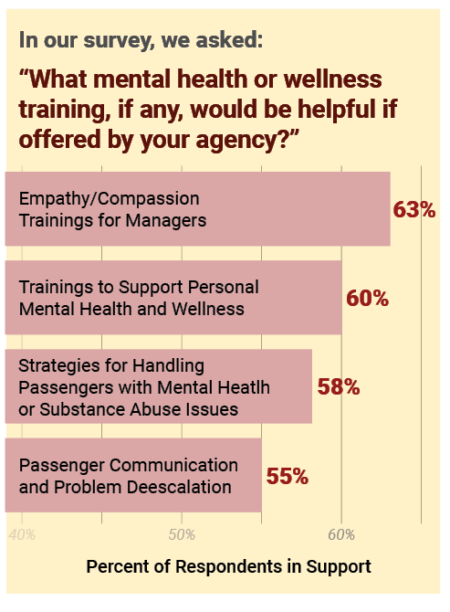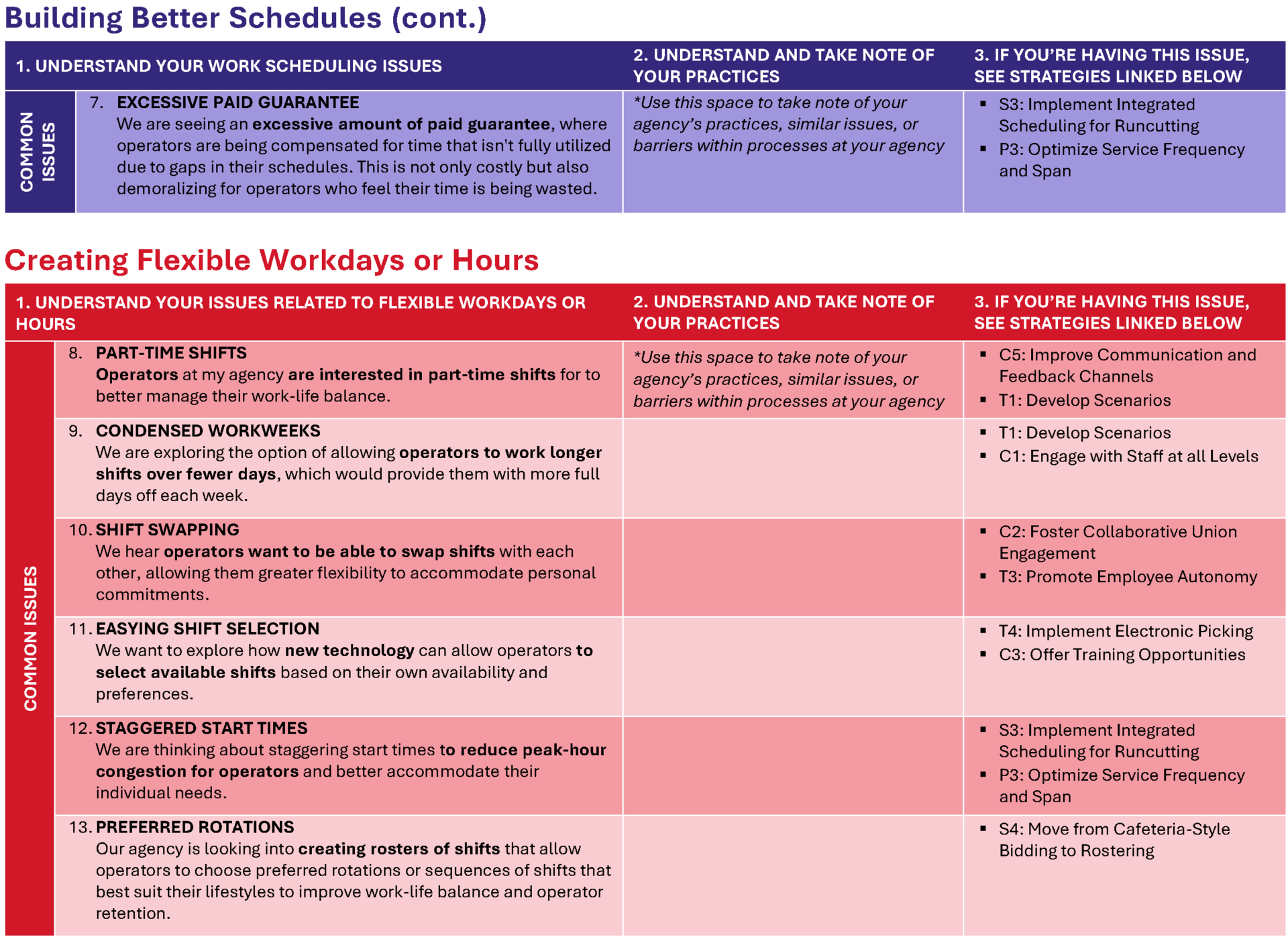Happy 2025! As we reflect on our employees following Foursquare ITP’s semi-annual staff retreat, we are also thinking about how we can support transit workers—especially those on the frontline and in operations.
Transit frontline workers—including operators, station personnel, mechanics, technicians, and other operations support staff—keep our trains and buses running. They show up in rain, sleet, snow, and heat, so we need to show up for them! Many of our clients have faced challenges in hiring, retaining, and training frontline workers. Foursquare ITP has been there to help them through those challenges with tools, research, and proven best practices.

TCRP Report 245.
We led research for APTA (Transit Workforce Shortage) and TCRP (Report 245: Mental Health, Wellness, and Resilience for Transit System Workers) on workforce challenges in the transit industry. Through national surveys, we have found that 96 percent of agencies reported a workforce shortage, 84 percent of which said the shortage affects their ability to provide service. The root causes for workforce attrition include difficult work schedules for operators and mechanics, feelings of isolation and loneliness in the field, and an overall lack of tools and training to conduct their jobs safely. The good news is: There are many tools and programs agencies can implement to grow a healthier and happier workforce. Our toolkits for APTA and TCRP Report 245 provide an easier-to-navigate guide for managers to address common challenges.
Our boots-on-the-ground work includes more tactical help for agencies improving operators’ work-life balance. For GoTriangle, in Durham, North Carolina, we analyzed operator shifts and rosters to help identify difficult work schedules. We then quantified the cost of improving those shifts and the quality of work life for operators, including the cost of implementing initiatives like differential pay for split shifts and consecutive days off. For the MBTA in Boston, we evaluated restroom availability at proposed layover locations for their planned bus network redesign to improve operator comfort with shorter time between potential restroom breaks.
Workforce preparedness is also key in the shift to zero-emission technology. New technology means upskilling the workforce and recruiting new technicians to manage increasingly complex systems. Our work for the Regional Transportation District (RTD) Denver’s zero-emission transition plan focused on quantifying the training needs as the agency contemplates shifting to various zero-emission technologies. By modeling the staffing changes and training hours needed to upskill existing staff and on-board new staff across every position within operations, we were able to set RTD up for success.
Foursquare ITP is excited to continue expanding our expertise in transit workforce-related issues. We look forward to helping our current and future clients find the solutions that work best for them and their communities. Check out our website to learn more about the services we offer.
